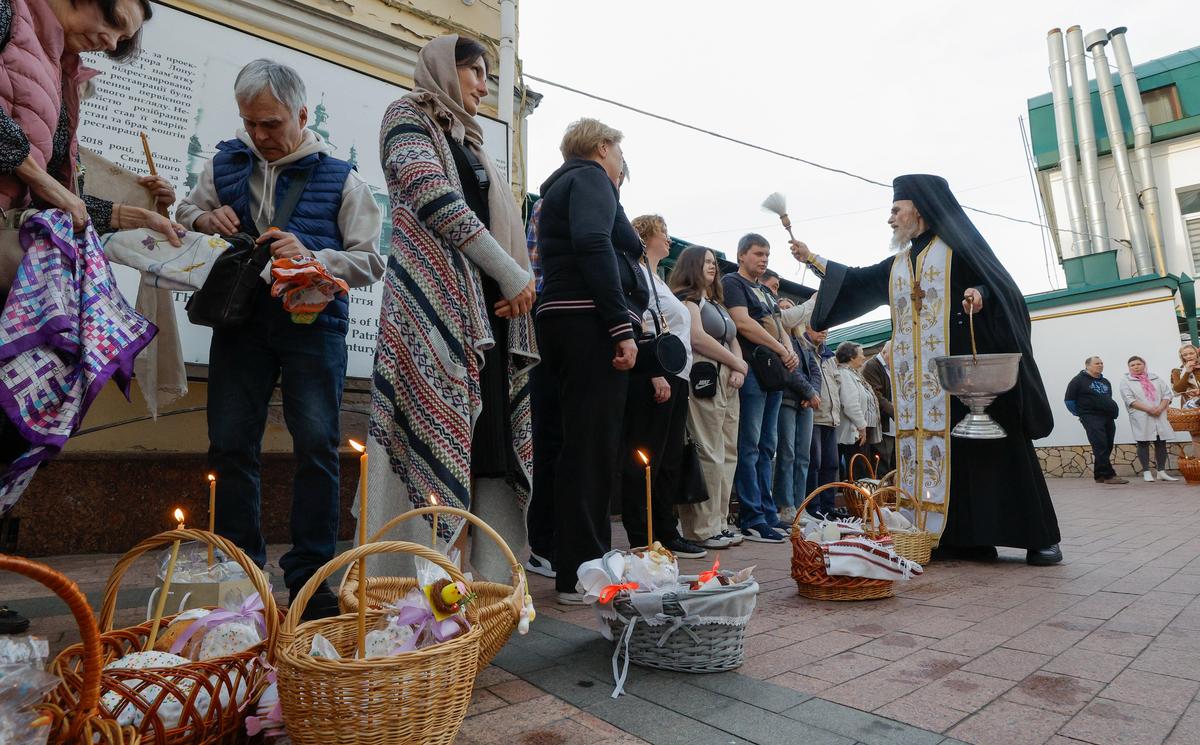
A Ukrainian priest blesses believers at the St. Feodosia Monastery in Kyiv, Ukraine, 19 April 2025. Photo: EPA-EFE / SERGEY DOLZHENKO
Ukraine and Russia have accused each other of breaking an “Easter truce” just hours after a 30-hour cessation in hostilities in Ukraine was unilaterally announced by Vladimir Putin on Saturday afternoon.
Citing the Chief of Staff of the Armed Forces of Ukraine Oleksandr Syrskyi, Ukrainian President Volodymyr Zelensky said on Sunday morning that 387 incidents of Russian shelling, 290 cases of Russian drone use, and 19 offensive actions had been carried out by the Russian military between the start of the ceasefire at 6pm on Saturday and midnight on Sunday, and that a further 59 cases of shelling and five offensive actions had been recorded on Sunday morning.
“The Russian army is attempting to create the overall impression of a ceasefire, while continuing to make individual attempts to advance and inflict losses on Ukraine,” Zelensky said.
Nevertheless, there were no airstrikes on Ukraine overnight, and the Ukrainian Air Force stopped issuing air raid alerts from about 10pm on Sunday.
Though the Russian Defence Ministry did not report any Ukrainian drone strikes overnight, the Russian-installed governor of Ukraine’s Kherson region, Volodymyr Saldo, accused the Ukrainian military of carrying out attacks on several villages in the region, but made no mention of any casualties or damage.
Saldo did, however, say that “in a number of areas there was silence, no shelling. So, even among the Ukrainian military there are those who heard the call for peace and retained their humanity. But, alas, not all of them did.”
Elsewhere in Russian-occupied eastern Ukraine, the Russian-installed administration in the Donetsk region reported the Ukrainian shelling of the city of Horlivka at dawn on Sunday, claiming that “four shells of NATO calibre were fired at the city”. Russian news agency TASS also reported a strike on the regional capital Donetsk that led to “at least three explosions”.
Russian pro-war bloggers said the truce was designed for an external audience and would play “an important role in strengthening Russia’s diplomatic position”. The temporary ceasefire would also allow Moscow to undertake a small but vital rotation of troops at the front line, BBC News Russian wrote.
Following Putin’s unexpected announcement of a brief ceasefire on Saturday, Zelensky declared Kyiv’s intention to act in accordance with Russian actions rather than words, promising “silence in return for silence” as well as “strikes in return for strikes”.
Urging that the truce, if successful, be extended beyond midnight on Sunday, Zelensky argued that this would “show Russia’s true intentions, because 30 hours is enough for headlines, but not for real confidence-building measures”, before warning that “Evil may have its hour, but God will have his day.”
